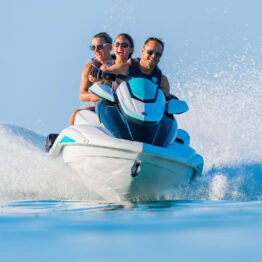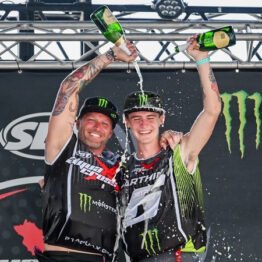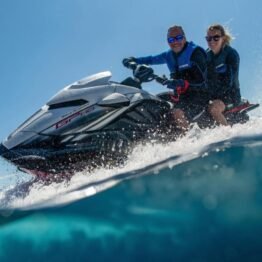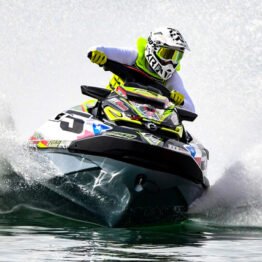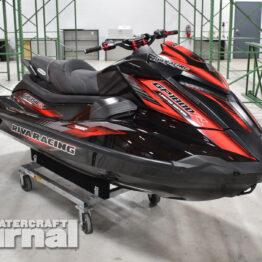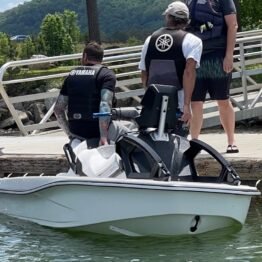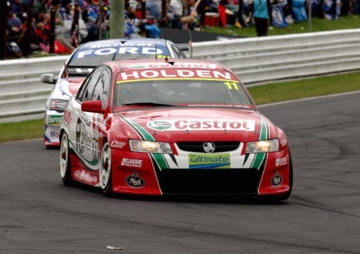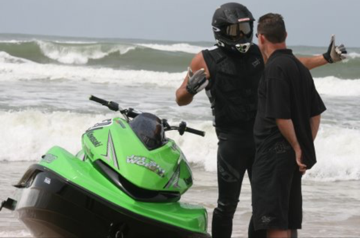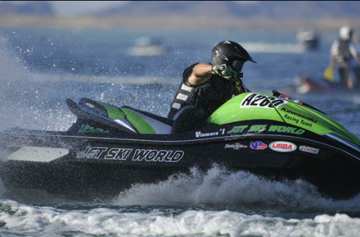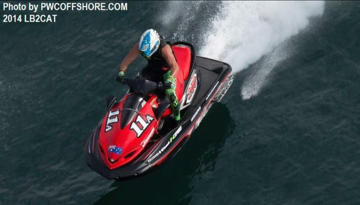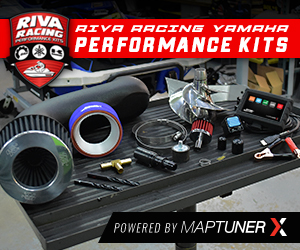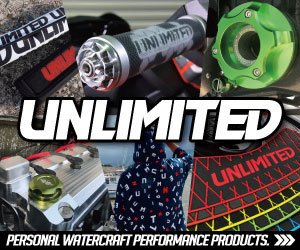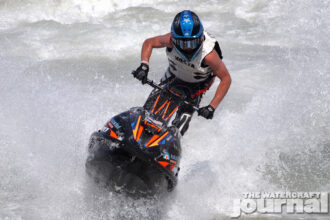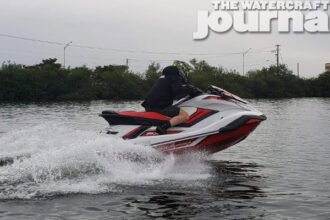The Watercraft Journal: Christian, thank you for taking the time to sit down with us! For many of our readers, they have no idea of your extensive racing background – dating back to Australia’s world-famous V8 Supercar series, the American LeMans and even entering into the Australian Drift Series! What drew you to these awesome racing series? Tell us how you got into racing at such a competitive level.
Christian D’Agostin: Motor racing has been a huge portion of my life, from the age of 2, dad had me at the track. He was the team manager for Garry Rogers as a driver who now runs the very successful Volvo V8 supercar teams in Australia today. My uncle built a very “agricultural” go-kart when I was 5. I basically drove that into the ground, which is when dad got serious with my potential and brought a proper Sprint Kart. So from age 10 to 20 we basically raced everywhere, every weekend.
This was an excellent baseline to go forward with. I owe all my tin top racing success and opportunities to Commordore Cup – a V8 sedan series which I won two Australian championships with, which opened the doors to V8 Supercars, in which I was able to race many rounds and seven Bathurst 1000 races.
I was in Adelaide racing at “Race of 1000 Years” where the American LeMans series was racing on the Formula 1 circuit. I was asked to race a Porsche GT3R for an American Team in the race. I had never driven a left-hand steer before and finished 7th outright and 1st in class. From there I was asked to do the Daytona 24 Hours, which was a great opportunity.
My Holden (General Motors) alliance got me a opportunity to compete in the the Australian Drift series with a 900hp Commodore (Pontiac) prototype, which was a real eye-opener coming from 20-plus-years of grip racing to drift!
WCJ: Leaping from top level auto racing to jet ski racing might be considered by some as taking a “step backwards.” Do you feel this way? What prompted you to make such a big switch?
CD: I had done everything I could do with my motorsport career within my parameters. I was lucky enough to be able to do it full time for 5 years, and 24 years in total of competition! But I never saw jet skiing as a competition for me, it was a completely recreational outlet. Being on the Gold Coast and all, we were just always in the surf on our GP1200R’s just having a blast – then in 2005 there was a surf race here on the Gold Coast, thought I would do it for a bit of fun. And look what happened! I was hooked.
In no way at all do I see jet ski racing a step back at all. The completion and competitive nature of all riders I have raced [against] are just as hungry to win as anyone I have come across – they are racers too – just with a different skill set.
WCJ: Are there any major lessons that you’ve learned from auto racing that apply to jet ski racing? What have you seen in your experience that today’s jet ski racing could learn from automotive racing?
CD: Believe it or not, I take them all to a jet ski event. Racing is racing. The skill set is a little different, but they do have a lot of similarities. The mental and physical fitness, and preparation is the biggest – especially long distance offshore racing. These jet skis are being squeezed to [their] breaking point by the riders and engineers. [It’s] no different to motor racing. So preparation of both is paramount.
Jet ski racing fundamentally suffers from the lack of corporate support. More so in Australia where even the manufactures of the skis we race is minimum across the board.
Unfortunately in my experience you can’t wait for the sponsor to be interested in the sport, you have to take the sport to the sponsor. This will always be difficult if it can’t be found on television. Although jet ski racing has been around for years, I still don’t think it’s [reached] its potential. People can’t afford to play the horsepower war any more, the OEM stock classes and “one make series,” which myself and a couple of your fellow countrymen raced in China late last year was a great success, and put on some spectacular closed racing. I think this a key to growing the sport.
WCJ: Since moving to jet ski racing, you’ve experience some marked success: winning the 2013 Australian Offshore Triple Crown and 2014 Australian endurance championship, a 1st place in this past Pro Open Runabout Enduro at Perth, (as well as a pair of podium finishes in Pro Stock and Pro Open) and even crossing the infamous Bass Strait on a JetSki to raise awareness for prostate cancer! What big goals do you have for your jet ski racing career for 2015?
CD: Now that we are the Factory Kawasaki Racing Team for Australia for 2015, I would love to repay their commitment with a third Australian title. We also as a team have to right a few wrongs – we have a lot of unfinished business with the King’s Cup Endurance races and LB2CAT – you guys would be still talking about the time we did in practice if I could of replicated in the race! Hopefully this year. But the biggest feather in our 2015 cap would be to win the World Offshore Series.
WCJ: We caught you right before you departed to Lake Havasu City, Arizona for the Mark Hahn Memorial 300. What are you bringing to this race? What class are you entering? What expectations do you have for this race?
CD: We have put everything and [more] into this event. Being our first [Mark Hahn Memorial] 300, we have buried some perfectly good components – pushing [them until] we broke it, trying to eliminate all [the] gremlins. We have a 78, 75 and 72mph configurations for the event, obviously the 72 mph gives us [the] best reliability and economy – it’s super important to finish for us as its Round 1 of the World Offshore Series. We will be doing Pro Open and I will be riding by myself [Ironman]. And of course backing myself to win, which would be huge, very hard, but not out of the question.
WCJ: Will this be the last America will see of you this year?
CD: All going well, our [Kawasaki] 310X SE will stay with you in the northern hemisphere for the rest of the year. LB2CAT is locked in, Round 2 of the World Series in Russia, the Aqua Bike Finals again in China, and all going well, we will finish the year off at King’s Cup. And of course finishing our AJSBA Tour.
WCJ: That is an extensive schedule! We wish you the very best both this weekend and throughout the year! To conclude, is there anyone you’d like to personally thank for helping get this far in your career? (Now’s the time to “shout out” to your sponsors!)
CD: First of all, Jamie Eade, owner of Brisbane Kawasaki. (The JetSki whisperer!) He has been there 100-percent all the way. I don’t think he knew what he was getting into when he met me. [Thanks for his] superb knowledge of the craft, and a man who is prepared to sacrifice to get the result. Next, Cameron Martin – the rock of the team. He’s always reliable – never missed a meeting here or overseas. He’s got it sorted while your still thinking about it. [Finally,] Tom Hayes, our shop race mechanic who never gets any accolades. [He] spends the most time in the shop fixing, building, repairing three race boats as his priority. [He] never complains, never says no, just always steps up.
[And of course,] my beautiful wife Sophie and daughter Sienna for their ongoing support of my racing, and putting up with all the away time. There’s nothing better to come home to than you two guys – I love you both. Big thanks also to Kawasaki Australia, Brisbane Kawasaki, K-Speed, PTS, MissBikiniLover.com, Jettribe, 360 Health, Fight Like a Pro, Sole Revolution and PWCOffshore.com


